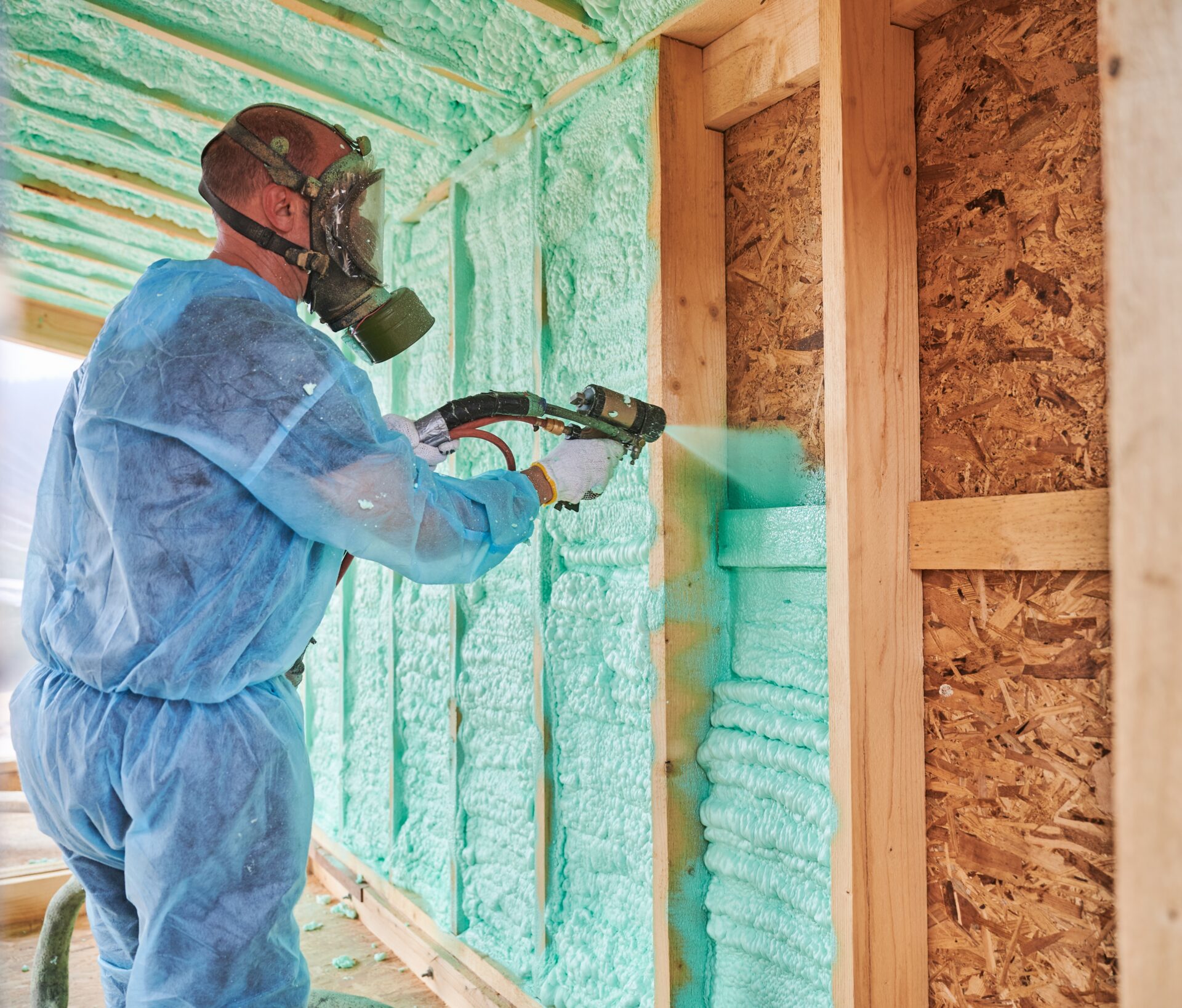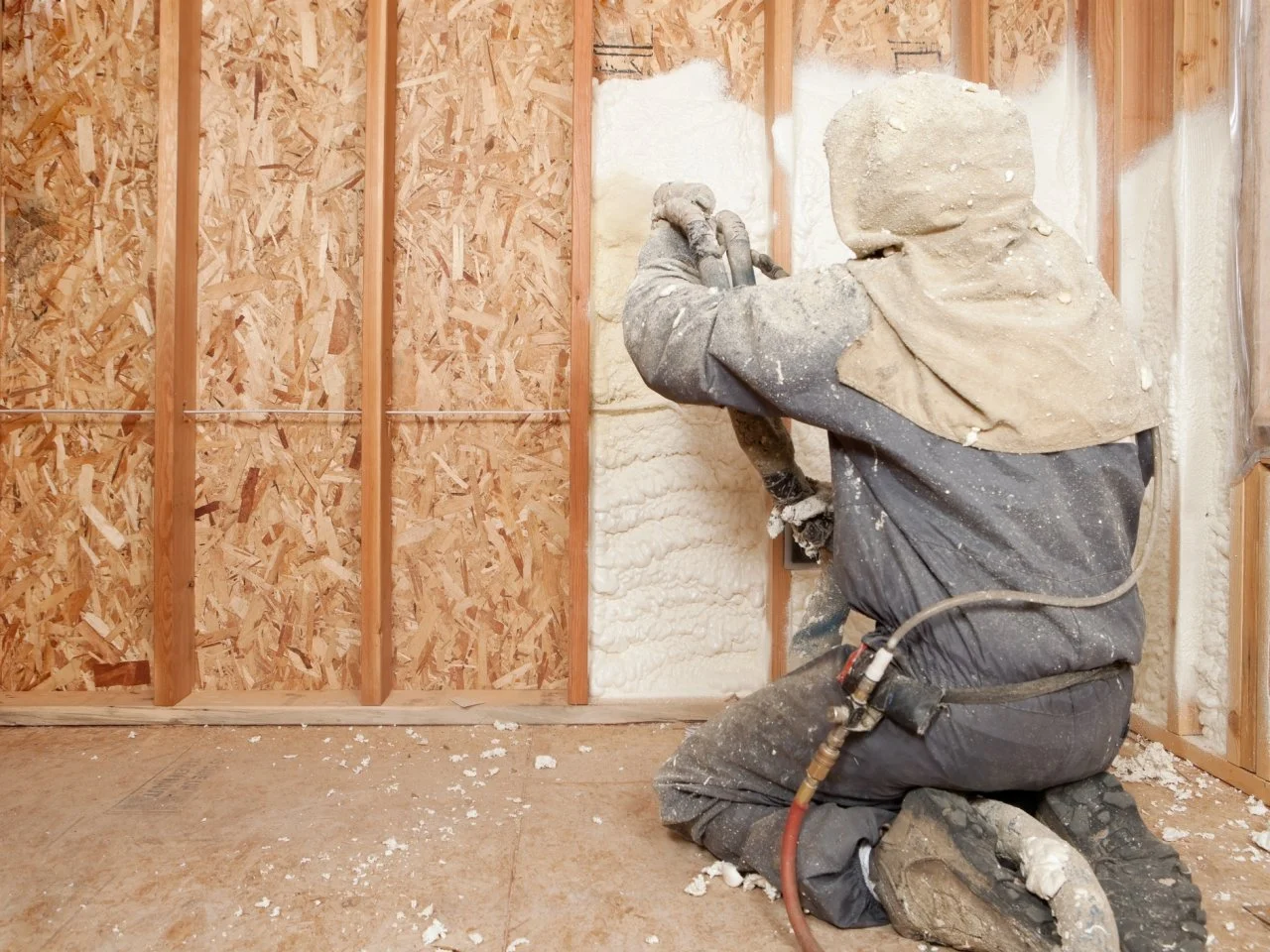Selecting the Right Type of Spray Foam for Your Insulation Demands
Selecting the Right Type of Spray Foam for Your Insulation Demands
Blog Article
Spray Foam: The Ultimate Service for Air Sealing and Insulation
Spray foam insulation has actually arised as a leading remedy for effective air sealing and thermal insulation, using an unique combination of residential properties that establish it in addition to traditional techniques. Its capacity to increase and load voids makes it specifically reliable in preventing air leakage, which can substantially influence power effectiveness. Nevertheless, comprehending the full extent of its advantages, installation procedures, and contrasts with other insulation kinds is essential for making informed decisions. As we discover these facets, the ramifications for both new constructions and retrofits end up being significantly substantial. What aspects should influence your selection?
What Is Spray Foam?
Spray foam is a versatile insulation product that integrates the concepts of air sealing and thermal resistance to boost power effectiveness in buildings. Made up mainly of polyurethane or various other similar compounds, spray foam is used as a liquid that expands upon contact with surface areas, creating a strong, continual layer of insulation. This distinct building enables it to load gaps, fractures, and spaces that traditional insulation materials may forget, providing a remarkable air seal.
There are two primary sorts of spray foam: open-cell and closed-cell. Open-cell spray foam is lighter and much more flexible, supplying outstanding noise absorption and a lower R-value per inch - Spray Foam. In contrast, closed-cell spray foam is denser, giving a greater R-value, dampness resistance, and added structural stability to developing parts
The application procedure normally involves specialized devices, making sure a smooth application that abides by numerous substratums, consisting of steel, timber, and concrete. This adaptability makes spray foam appropriate for both brand-new buildings and retrofitting existing frameworks. Its capability to produce an impermeable barrier substantially adds to lowering power usage and enhancing interior air high quality, consequently making it a favored option among property owners and contractors alike.
Benefits of Spray Foam Insulation
Among one of the most considerable advantages of spray foam insulation is its outstanding capability to create a continual air barrier, which efficiently minimizes power loss. Unlike standard insulation materials, spray foam increases to fill up fractures and spaces, ensuring that air leak is substantially minimized. This characteristic not just enhances power effectiveness but likewise results in decrease energy costs gradually.
Additionally, spray foam insulation supplies superior thermal resistance, adding to a more stable indoor setting. Its high R-value per inch enables reliable insulation in confined areas, making it ideal for attics, walls, and crawl rooms. The moisture-resistant buildings of spray foam help avoid mold and mildew and mold growth, promoting healthier living problems.
An additional important benefit of spray foam insulation is its sound-dampening top qualities (Spray Foam). It efficiently lowers noise transmission between areas, producing a quieter and more comfortable home atmosphere. The sturdiness of spray foam additionally stands out, as it does not sag or clear up over time, preserving its performance throughout its life expectancy
Exactly How Spray Foam Functions
Comprehending just how spray foam insulation functions is important for appreciating its effectiveness in air sealing and thermal resistance. Spray foam insulation includes two key components: isocyanate and polyol resin. When these components are combined, they undertake a chemical response that creates the product to expand quickly, producing a dense foam that fills cavities, cracks, and spaces.
As the foam broadens, it complies with surfaces, creating a closed seal that substantially minimizes air infiltration. This characteristic makes spray foam insulation very efficient at avoiding drafts and moisture infiltration, which can result in power loss and damages in time. Additionally, the closed-cell version of spray foam provides superior thermal resistance due to its inflexible structure, efficiently minimizing warmth transfer.
The distinct residential properties of spray foam allow it to adapt uneven surfaces, making sure comprehensive protection and a seamless obstacle. Because of this, spray foam insulation not only enhances energy performance however additionally adds to improved interior air quality by decreasing the buildup of pollutants and allergens. Eventually, recognizing the mechanics behind spray foam emphasizes its role as a remarkable selection for insulation and air securing in both business and property applications.
Installation Process Introduction

Prior to installment, the room must be effectively cleansed and prepped, ensuring that surfaces are complimentary from dirt, moisture, and particles. This step is important due to the fact that impurities can endanger adhesion and overall performance. As soon as the location is prepared, the application includes mixing the two components of the spray foam, which increases upon call and loads voids successfully.
Educated experts ought to conduct the installation, utilizing customized tools to make sure uniform coverage click site and optimum thickness. Safety safety measures, including using safety equipment and guaranteeing proper ventilation, are crucial throughout this procedure. After application, the foam commonly treatments swiftly, forming a strong barrier that improves energy efficiency.
Contrasting Spray Foam to Conventional Insulation
When evaluating insulation choices, spray foam insulation stands out in contrast to traditional products such as fiberglass and cellulose. Unlike fiberglass and cellulose, which can permit air infiltration, spray foam broadens upon application, loading gaps and gaps to create a closed seal.
In addition, spray foam offers a greater R-value per inch than typical insulation kinds, providing more efficient thermal resistance in a thinner account. This characteristic is especially valuable in spaces with restricted tooth cavity deepness. In addition, spray foam is resistant to wetness and mold and mildew development, which can be a substantial concern with cellulose and fiberglass, particularly in damp settings.
Nevertheless, spray foam insulation commonly lugs a greater ahead of time price than its typical equivalents. Home owners need to weigh this initial investment versus lasting power cost savings and performance benefits. Ultimately, while both insulation types offer their function, spray foam becomes an advanced remedy for modern-day insulation demands, specifically in terms of air sealing and thermal effectiveness.

Final Thought
In recap, spray foam insulation represents a highly reliable solution for attaining optimal air sealing and thermal resistance. Its one-of-a-kind residential properties, consisting of moisture resistance and sound dampening, make it appropriate for numerous applications in both new building and constructions and retrofitting jobs (Spray Foam). Although the preliminary expenses might be Website greater compared to standard insulation products, the long-term benefits, such as significant energy cost savings and enhanced indoor air high quality, justify the investment and highlight its value in modern building practices.
Spray foam insulation has emerged as a leading service for effective air securing and thermal insulation, supplying an one-of-a-kind mix of residential or commercial properties that set it apart from conventional techniques.Spray foam is a versatile insulation product that incorporates the principles of air sealing and thermal resistance to boost power efficiency in structures.When examining insulation alternatives, spray foam insulation stands out in contrast to conventional materials such as fiberglass and cellulose. Inevitably, while both insulation types offer their function, spray foam emerges as a more innovative service for modern insulation demands, especially in terms of air securing and thermal effectiveness.
In summary, spray foam insulation stands for a very effective remedy for accomplishing optimum air sealing and thermal resistance.
Report this page